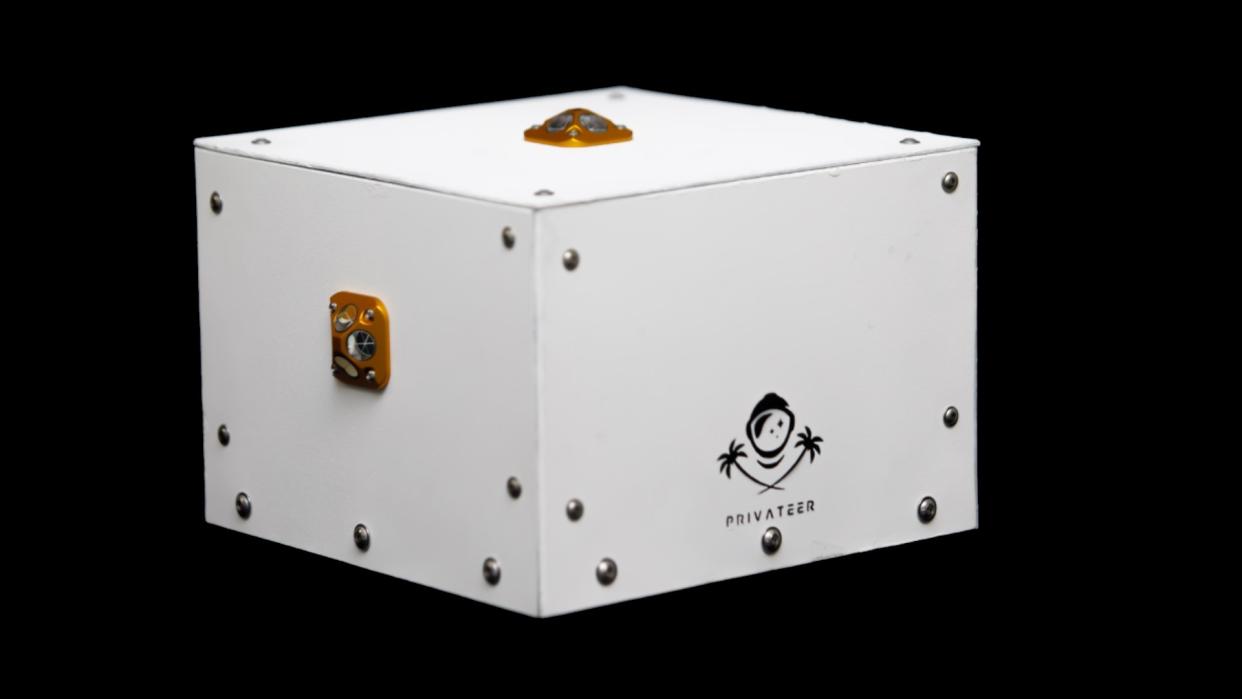Steve Wozniak's start-up Privateer develops ride-sharing spacecraft to reduce orbital clutter

- Oops!Something went wrong.Please try again later.
- Oops!Something went wrong.Please try again later.
Space start-up Privateer, co-founded by the famed Apple technologist Steve Wozniak, will begin orbital tests of its ride-sharing orbital module Pono in January.
The module, which launched on Dec. 1 atop a SpaceX Falcon 9 rocket, was developed to encourage space users to share assets in order to reduce the growing amount of satellites and other orbital clutter around Earth.
"Just like we are trying to minimize single use plastics, we would like to minimize single-use satellites," space sustainability researcher and Privateer chief scientist Moriba Jah, told Space.com in an interview. "We don't have recyclable satellites yet. But with Pono, we have developed a package that can make satellites multi-use."
Jah is critical of the current unbridled developments in space and would like the sector to adapt an attitude more in line with the concept of a circular economy — an approach to resource utilization that aims to keep materials in use for as long as possible through recycling instead of constant mining for new materials. Inspired by car-sharing, which has offered a more resource-conscious alternative to owning a car, satellite-sharing might soon become a preferred choice for space data researchers.
Related: Performing evasive maneuvers increases satellites' collision risk down the road
"Just like you have ridesharing with Uber, you can basically oversubscribe a common asset so that multiple people can get the benefit," Jah said. "Not everybody who wants to get data about space and from space would need to have to launch a satellite."
To demonstrate that they practice what they preach, Privateer launched Pono not as a standalone spacecraft, but as a component of a mission operated by Italian start-up D-Orbit. All future Pono missions will be launched in partnerships with other satellite operators to help reduce the number of new objects in space.
Like many other space sustainability experts, Jah has concerns about the growing quantities of operational satellites and junk hurtling around Earth. According to the European Space Agency, as of November 2023, 6,800 operational satellites orbited the planet together with some 36,000 pieces of space debris larger than 4 inches (10 centimeters) and millions of smaller fragments. These numbers are set to rise as mega-constellations of internet-beaming satellites, such as SpaceX's Starlink and Amazon's Project Kuiper, continue to grow. Experts fear that with so much 'stuff' in orbit, collisions may soon become commonplace.
"From an environmental lens, the way that we're behaving now is kind of leading to our own demise in being able to utilize space," Jah said. "So, we have to do something different."
In addition to enabling users to share space assets, Pono has another function that aims to enhance sustainability of orbital operations: The module will collect data about orbital traffic, which Privateer will use to create the "Google maps" of space — an interactive application called Wayfinder, integrating information from the future Pono constellation and other sources.
Privateer's spokesperson Beau Holder told Space.com that the company ultimately envisions an entire constellation of Ponos. The second module is already scheduled for launch in 2024, and the first platform to serve customers is expected to fly a year later.
RELATED STORIES:
— How many satellites can we safely fit in Earth orbit?
— FCC issues 1st-ever space debris fine, serves DISH $150k penalty
— Getting space junk under control may require an attitude shift
Fitted with a powerful edge computer capable of running complex AI and machine learning algorithms, Pono will likely find its place in the Earth-observation market, allowing users to process images in orbit instead of beaming large datasets to Earth. In the future, Pono's on-board computers will even be able to evaluate the risk of orbital collisions and perform autonomous avoidance maneuvers.
"Pono is a compact hosted payload that physically integrates with partner satellites," Holder wrote in an email. "Privateer will offer the commercial model to all interested operators, who will receive improved tracking, taskability, and conjunction avoidance alongside the seamless delivery of their data to new markets."

